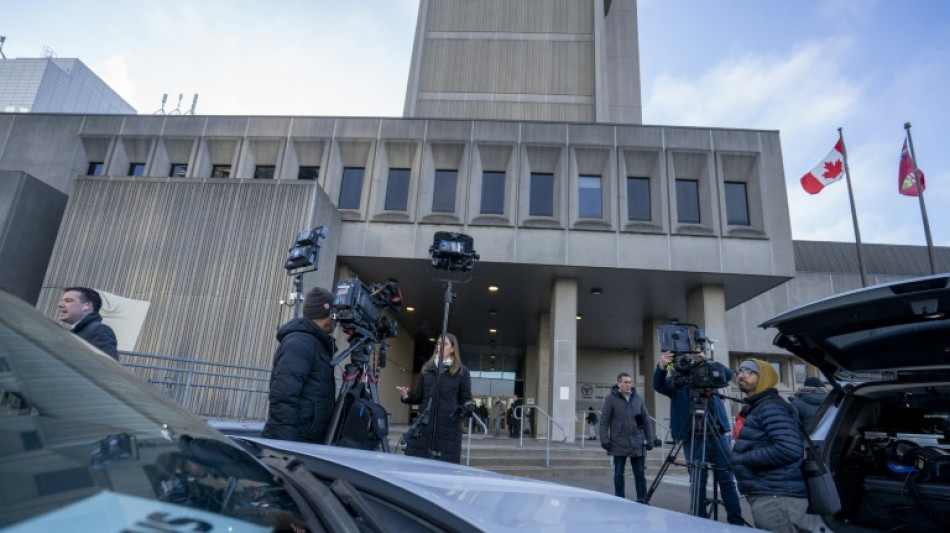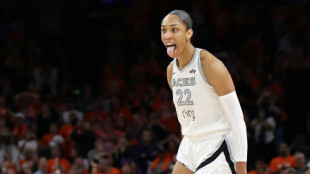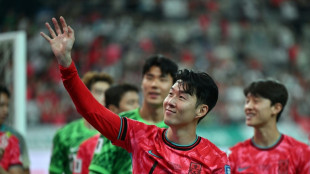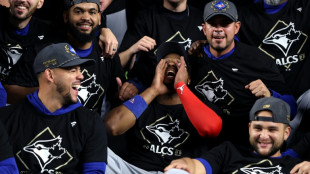

Judge to rule in sexual assault case that shook Canadian hockey
A Canadian judge will deliver a verdict Thursday in the trial of five professional ice hockey players on sexual assault charges, in a case that has rocked the cherished national sport.
The players stood trial over allegations they assaulted a woman in a hotel room following a June 2018 celebration for a national men's junior team.
Michael McLeod, Alex Formenton, Dillon Dube, Carter Hart and Callan Foote have denied wrongdoing, insisting the accuser -- whose identity is protected -- consented to a variety of sex acts.
The complainant, 20 at the time, met McLeod at a bar in London, Ontario, before having sex with him.
That initial encounter is not at issue in the trial, which is about events that occurred after McLeod messaged a team-wide group chat asking if anyone was interested in a "three-way."
The players have confirmed participating in sex acts with the complainant and an initial police investigation produced no charges.
Media investigations then revealed Hockey Canada, a governing body, used funds from subscription fees paid by ordinary families for a $3.55 million CAD ($2.6 million USD) out-of-court settlement with the woman.
Public outrage forced the resignation of Hockey Canada's board, and London police, under a new chief, re-investigated the case led by a female detective with expertise in sexual assault.
Western University law professor Melanie Randall, who has closely followed the case, told AFP the flawed initial investigation included an "inappropriate fixation" by the detective on the complainant's alcohol consumption.
Randall added the first detective didn't apply up-to-date understandings of consent under criminal law, the issue that defined the trial.
"Consent has to be voluntarily and freely given, and it has to be contemporaneous with each and every sexual act," Randall said.
"You can't give consent in advance and you can't give it retroactively," she added, calling that a "powerful shift in (Canadian) law."
- Consent video -
The trial heard that players made videos of the complainant saying she was OK with what happened.
Prosecutors argued the decision to make a video indicated concern the sex was not consensual.
Hart, a former NHL goaltender, testified such videos were common practice among professional athletes.
Randall noted, "the idea that you could film someone afterwards and say -- 'hey, this was all consensual, right?' -- to prove that there was consent is actually completely discordant with how consent is defined (in Canadian law)."
In a landmark 1999 decision, Canada's Supreme Court barred defense lawyers in sexual assault cases from a tactic it called "whack the complainant."
Scholar have defined this as withering cross examination attacking a complainant's credibility through outdated stereotypes about sexual encounters.
Raising their entire sexual history, alleged promiscuous behavior, or questions about why they did not resist are prohibited.
For Randall, defense lawyers in the hockey case committed "a pretty egregious and blatant example of whack the victim, full force," citing "nine days of brutal cross-examination."
- Hockey culture -
Some commentators have rejected claims the case exposed broader issues in hockey culture, arguing the sport remains a positive force for hundreds of thousands of young Canadians despite a disturbing incident involving several players.
But Simon Darnell, a professor of sport for development and peace at the University of Toronto, told AFP "it would be a problem to say that these five men were somehow bad apples and that there's nothing systemic here."
Regardless of whether the judge finds the players guilty, Darnell said the conduct in the hotel room needs to be addressed.
"Young, elite male hockey players grow up in an environment, where they are told both implicitly and explicitly that they are really important," he said.
"They probably grew up feeling like sexual conquest was this thing that they're owed as a result of being a hockey player," he added, urging more work to foster a sports culture that emphasizes "a positive form of masculinity."
P.Weber--LiLuX


